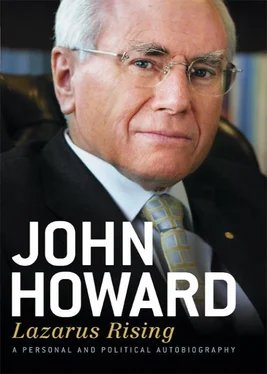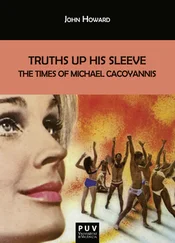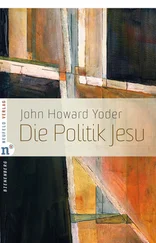During this time, some absurd attempts were made by some of Snedden’s supporters to obtain a public undertaking from Fraser that he would not challenge for the leadership. The ridiculous word game further weakened Snedden. Fraser owed it to the party to be available, if it wanted him.
Snedden was also weakened by his dismal parliamentary performances. One of them involved him calling out ‘woof woof’ to Whitlam, to which the Prime Minister replied, ‘The Leader of the Opposition is going ga ga.’ It was one of those parliamentary moments when a short exchange alters the whole dynamic of the chamber, and is perceived to have wider significance.
But it was Andrew Peacock who struck the match that set that dry grass alight. Asked one of those interminable questions about the leadership at Adelaide Airport on 14 March 1975, Peacock flicked back the response that, ‘Rumours and divisive speculation about the leadership are doing great damage to the Party. Mr Snedden should call a meeting and ask for a vote of confidence so that speculation can be ended.’ 1 Peacock’s intervention surprised many. He was a Snedden man. Fraser’s camp was ecstatic. Another vote for the leadership now had to be held.
Facing the inevitable, Snedden called a party meeting for 21 March.
The motion to declare the leadership of the party vacant was carried by 36 to 28, and Fraser was elected leader by 37 to 27. It was the right decision, as events over coming months were to show. During that time, Fraser was to demonstrate a steadfast pursuit of a given objective unmatched at any other time in his career. He also changed the mood of the party immediately. Although there was plenty of residual affection for Bill Snedden, and continuing lack of warmth towards Fraser from many colleagues, the mainstream of the Liberal Party knew that it had done the right thing by going for Fraser. He sounded strong and looked like a winner.
Although Fraser and I talked regularly, both of us believed the opposition should have sharper policies, and I had made some impact as a debater in the house, I had no expectation of promotion under Fraser. It was a complete surprise when he asked me to be opposition whip. It took me all of two seconds to say yes. I was bowled over to have any job, knowing that if I did it well, other things could follow.
Politics is a very competitive profession. The golden rule, if you want promotion, is always says yes when the leader offers you a job. If you don’t then the leader is entitled to, and will, move on to someone else.
In 1997 as Prime Minister, when doing a reshuffle, I offered Petro Georgiou, the MP for Kooyong, a position as a parliamentary secretary. He knocked it back, implying that it was beneath his dignity, saying ‘I’m too old and ugly to be a parliamentary secretary.’ This was several years before refugee and asylum-seeker issues were under debate, so Petro did not reject the job on policy principle. Whatever his motives, it was a foolish response. I never offered him another job. Brendan Nelson, Malcolm Turnbull and Tony Abbott all started off as parliamentary secretaries; each was made a cabinet minister by me. All of them would ultimately lead the party. Who did Petro imagine he was?
My surprise at being offered the whip’s responsibility was exceeded just two days later when Fraser rang to say that he now wanted me to be the shadow minister for consumers affairs and commerce. The reason was that Bob Ellicott, to whom he had offered the job, had refused Fraser’s edict that shadow ministers not do any non-parliamentary work. Ellicott had wanted to keep his hand in at the bar with a small amount of legal work. His position was quite reasonable. I certainly reserved the right, in opposition, to keep my hand in at the law. There was a double standard here. Apparently it was in order for people like Fraser and Tony Street and many others to own farms, or for Eric Robinson to maintain a string of sports equipment stores throughout Queensland, but Ellicott couldn’t do some legal work.
The distinction drawn at the time was that there was a manager in charge of the farm or the business. Of course, the principal had no contact with the manager, nor did he take any interest in what happened to the asset!
In any event, Ellicott had the most eloquent precedent of all on his side. Menzies had kept taking briefs, even as Leader of the Opposition, maintaining that it kept him in touch with changes in the law. He was also not ashamed to admit that he needed the money. Before too long Ellicott had made his point; he and Fraser cobbled together some formula and he came back to the shadow ministry.
Nevertheless, Ellicott’s temporary absence from the Coalition frontbench was a huge stroke of good fortune for me. Not only was I to speak for the opposition on a wide range of business issues, including competition law, but also to represent the shadow attorney general, Ivor Greenwood, in the lower house. At the time there was an avalanche of legislation in the AG’s area, and I would, within a little over 12 months of entering parliament in the lower house, have carriage on behalf of the opposition of some of the most complicated bills of the Whitlam Government’s second term. It was a fortuitous opportunity, which I relished.
When Fraser became leader, he cancelled the standing threat Snedden had made to block supply, at the first appropriate opportunity. He said that the Government should not be forced to an early election unless there were ‘extraordinary and reprehensible circumstances'. In the light of what unfolded later in 1975, there was some scepticism about how genuine Fraser had been in withdrawing the early-election spectre. It was generally well received, as there continued to be a strong sense in the community that whatever doubts there might be about the competence of Whitlam and his team, they were entitled to a fair go, and that the threat to block supply which had precipitated the May 1974 double dissolution had been unreasonable.
Whatever his motives, and I believed that Fraser was genuine, his decision was clever politics. The consequence was to put the spotlight more sharply on Whitlam and his crew, precisely when their decline into chaos began to gather momentum.
The disintegration of Gough Whitlam’s Government was very public. Disunity in government is usually caused by perceived or real challenges to its leadership, or arguments over policy direction or a combination of the two. Neither was the case in 1975.
Whitlam remained a messianic figure to the Labor faithful; he had brought them to the Promised Land, and no matter what political disasters befell the Government, he would remain in charge.
Gough Whitlam, though, did have a vicious streak, which was demonstrated when he cut down the speaker, Jim Cope, on the floor of the house. Cope had named Clyde Cameron, the Labour and Immigration Minister, for defying the chair. Whitlam delivered a humiliating vote of no confidence in Cope by refusing to support the removal of Cameron after he had been named. Cope resigned on the spot. It was dishonourable treatment of a man who had given years of service to his party.
Cope had a keen sense of humour. Ballots for a new speaker are secret, with each member writing on a voting slip the name of the candidate for whom they intend to vote. The Liberal candidate in the ballot following Cope’s removal was Geoff Giles, the MP for Angas in South Australia. He had no hope against the ALP nominee, Gordon Scholes, and in the course of the ballot Jim Cope called out, in his piercing voice, ‘How do you spell Giles?’ It broke up the whole place.
The public beheading of Cope was but one example of Labor’s progressive fragmentation through 1975. When Whitlam reshuffled his team mid-year, Clyde Cameron noisily resisted removal from his beloved Labour and Immigration post. During a division on a bill I was handling in the Attorney General’s area, a very agitated Cameron worked on a document as he sat beside the Attorney General at the table. The Attorney said to him, ‘Think of the party, Clyde'. Cameron’s salty reply made it plain that all he wanted to do was pay out on Whitlam. It was impossible for us not to notice such unhappy division. They no longer seemed to care.
Читать дальше












